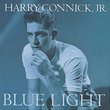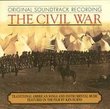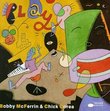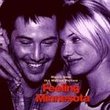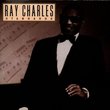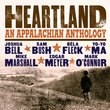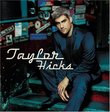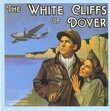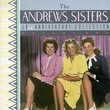| All Artists: Jelly Roll Morton, Thomas "Fats" Waller, Scott Joplin, James P. Johnson, Eubie Blake, Jimmy Blythe Title: Greatest Ragtime Of The Century - Classic Ragtime, Blues and Stomps from Rare Piano Rolls Members Wishing: 0 Total Copies: 0 Label: Biograph Release Date: 10/9/1992 Genres: Jazz, Special Interest, Pop Style: Traditional Jazz & Ragtime Number of Discs: 1 SwapaCD Credits: 1 UPC: 092631030020 |
Search - Jelly Roll Morton, Thomas "Fats" Waller, Scott Joplin :: Greatest Ragtime Of The Century - Classic Ragtime, Blues and Stomps from Rare Piano Rolls
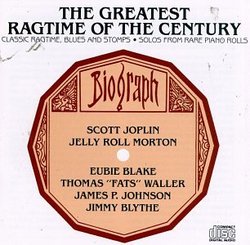 | Jelly Roll Morton, Thomas "Fats" Waller, Scott Joplin Greatest Ragtime Of The Century - Classic Ragtime, Blues and Stomps from Rare Piano Rolls Genres: Jazz, Special Interest, Pop
Piano rolls--perforated paper rolls that recorded a pianist's performance for playback on a mechanical "player piano"--represent one of the more fascinating windows on the music of the early 20th century. Though player pia... more » |
Larger Image |
CD DetailsSynopsis
Amazon.com Piano rolls--perforated paper rolls that recorded a pianist's performance for playback on a mechanical "player piano"--represent one of the more fascinating windows on the music of the early 20th century. Though player pianos included considerable mechanical noise, they represented the closest thing you could get to "live" sound even into the late 1920s, and they often functioned as acoustic jukeboxes. This CD provides piano rolls from early American music's important pianists, demonstrating the gradual shift in style that took place between ragtime and jazz. Part of the fascination of these rolls is that they represent the way musicians like Jelly Roll Morton and Fats Waller were often heard in their own era. The tracks by Scott Joplin include his most famous work, "Maple Leaf Rag," and in their subtle shifts and overall architecture, they demonstrate Joplin's affinity with European classical forms. Eubie Blake's ragtime pieces are more animated, including by far the earliest roll here, "Charleston Rag," recorded in 1899, when Blake was just 16. There's even more startling contrast between Joplin's careful formalism and the virtuosic exuberance of James P. Johnson, heard here in a joyous performance of "Steeplechase Rag" and a "Twilight Rag" that makes striking use of dissonance. Waller, Johnson's greatest pupil, plays with such larger-than-life vitality and rhythmic ease that his rolls of "New Kind of Man," "Nobody But My Baby," and "Got to Cool My Doggies Now" seem to cross the line into direct recordings of his performances. Alone among these artists, New Orleans jazz pioneer Morton exploits the extended playing time of the piano roll to press his "Shreveport Stomp" toward the five-minute mark. The final tracks come from Jimmy Blythe, a brilliant if obscure Chicago pianist who worked in both blues and jazz. "Mr. Freddie Blues" is pure, heartfelt blues playing, with little suggestion of ragtime, while "Regal Stomp," a duet by Blythe and Charles Clark, is an inspired demonstration of how much data a piano roll could manage. --Stuart Broomer Similarly Requested CDs
|
CD ReviewsEnjoying a Necessary Evil Marc Dolan | Brooklyn, NY USA | 09/22/2000 (4 out of 5 stars) "Before the advent of electric recording in the 1920s, the one musical instrument that it was almost impossible to record was the piano. This meant that during the heyday of ragtime piano, most ragtime composers concentrated on sheet music and most performers concentrated on touring. The closest thing we have to a record of what ragtime originally sounded like are piano rolls like these, most of them recorded in the late 1910s and ealry 1920s, just as piano rolls were building to their peak at the end of the pre-electric era. Oddly enough, because these are rolls rather than acoustic recordings, they are subject to a sort of monkeying that you just couldn't do with a record back then. They were adjusted for pacing and "rough" phrasing was made smoother as the roll was copied to the model from which all subsequent recordings would come. Consequently, pianists of very different generations (e.g., Scott Joplin and James Johnson) sound too much alike on this recording, because the companies that issued their rolls were aiming at an aggregate "rag piano" style. Nevertheless, this is the closest you will get to hearing what ragtime originally sounded like. As you listen, you will understand why Joplin in particular saw close connections between his compositions and those of more "classical" composers. You will also understand why he told people again and again: "You must never play ragtime fast."" Great ragtime piano COMPUTERJAZZMAN | Cliffside Park, New Jersey United States | 01/14/2008 (5 out of 5 stars) "excellent compilation of ragtime piano performances by some of the most famous and important artists of the 1910's-20's including Jelly Roll Morton, Scott Joplin, Eubie Blake, Fats Waller, and others. These performances were taken from piano rolls, which were used in player pianos, and they recordings are fantastic, they sound as if they were recorded yesterday."
|

 Track Listings (16) - Disc #1
Track Listings (16) - Disc #1